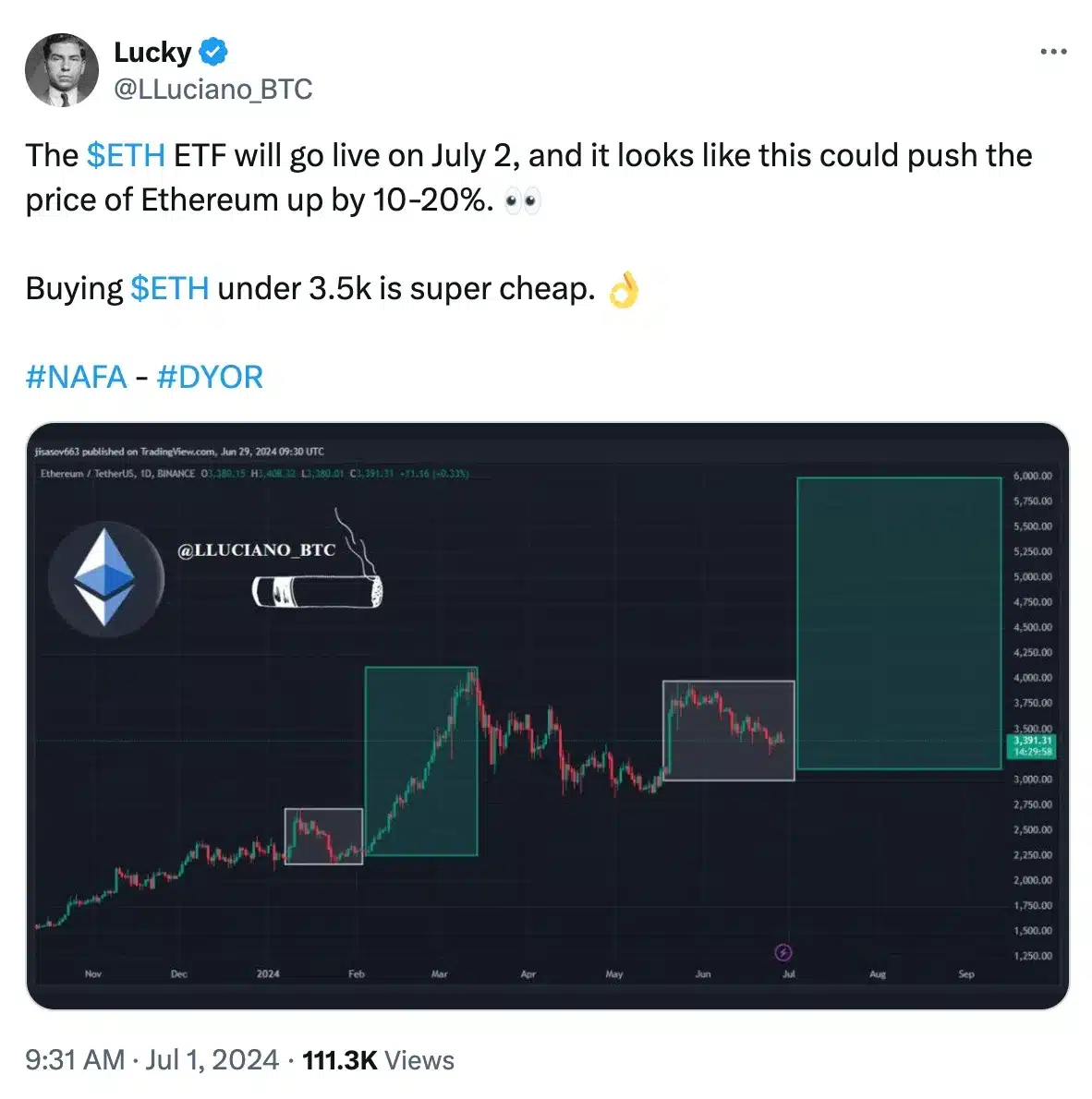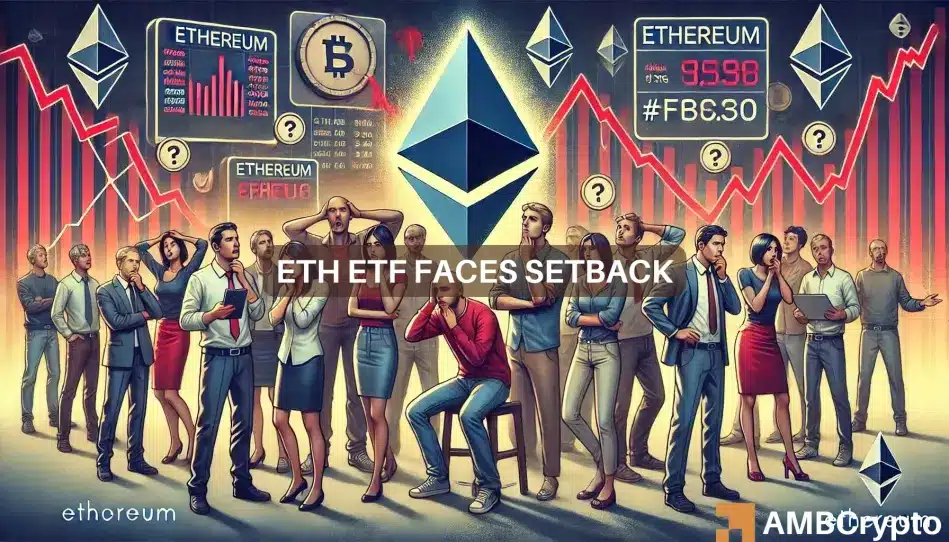- Significant outflows from Ethereum ETFs have raised investor interest and concerns about market performance.
- Despite sustained outflows in recent weeks, Bitcoin ETFs have maintained net inflows.
September has proven to be an unfortunate month for the Bitcoin (BTC) ETF market. But more concerning is the underperformance of the Ethereum (ETH) ETF, which has struggled since its launch.
Ethereum ETF net flow declines
According to the latest update from Farside Investors, the ETH ETF experienced a net outflow of $6 million on September 6th.
While other ETFs, including BlackRock’s ETHA and Fidelity’s FETH, saw inflows, Grayscale’s ETHE faced significant outflows, sending its net inflows into negative territory.
This raises an urgent question: Could an Ethereum ETF not be generating the attention it was supposed to?
What is behind this outflow phenomenon?
To understand why investors shy away from Ethereum ETFs, it’s important to look at several factors.
Unlike staking $ETH, which can yield 1-5% annual returns, holding $ETH spot ETFs limits these passive income opportunities.
Additionally, the Ethereum to Bitcoin ratio has fallen by 50% over the past two years, causing many former ETH users to migrate to layer 2 solutions or more cost-effective layer 1 blockchains.
For example, the $SOL/$ETH ratio has soared by 346%.
Ethereum also has inflation because it issues more $ETH than it burns, unlike Bitcoin which has a limited supply of 21 million.
Recent updates such as the Proto-Danksharding upgrade have further reduced Layer 2 transaction fees, reducing Ethereum’s yield.
Grayscale’s ETHE is seeing significant outflows, raising concerns, and the ETF is seeing further net outflows.
The prediction that the ETH price will soar to $4,000 following the launch of the Ethereum ETF looks increasingly unlikely.


Source: Lucky/X
According to the latest update from CoinMarketCap, ETH is currently trading at $2,321, despite a 0.66% increase, which is significantly lower than expected.
Bitcoin ETF Comparison
In contrast, Bitcoin ETFs have seen net inflows of $16.897 billion since their launch.
Despite Grayscale’s GBTC facing outflows, BlackRock’s ETF and other BTC ETFs have seen net inflows overall.
While there have been occasional outflows, the only time Bitcoin ETFs have experienced sustained outflows has been in the past two weeks.
So it remains to be seen whether the Ethereum ETF will turn from outflows to inflows, or whether investors will continue to observe a sustained outflow trend.

